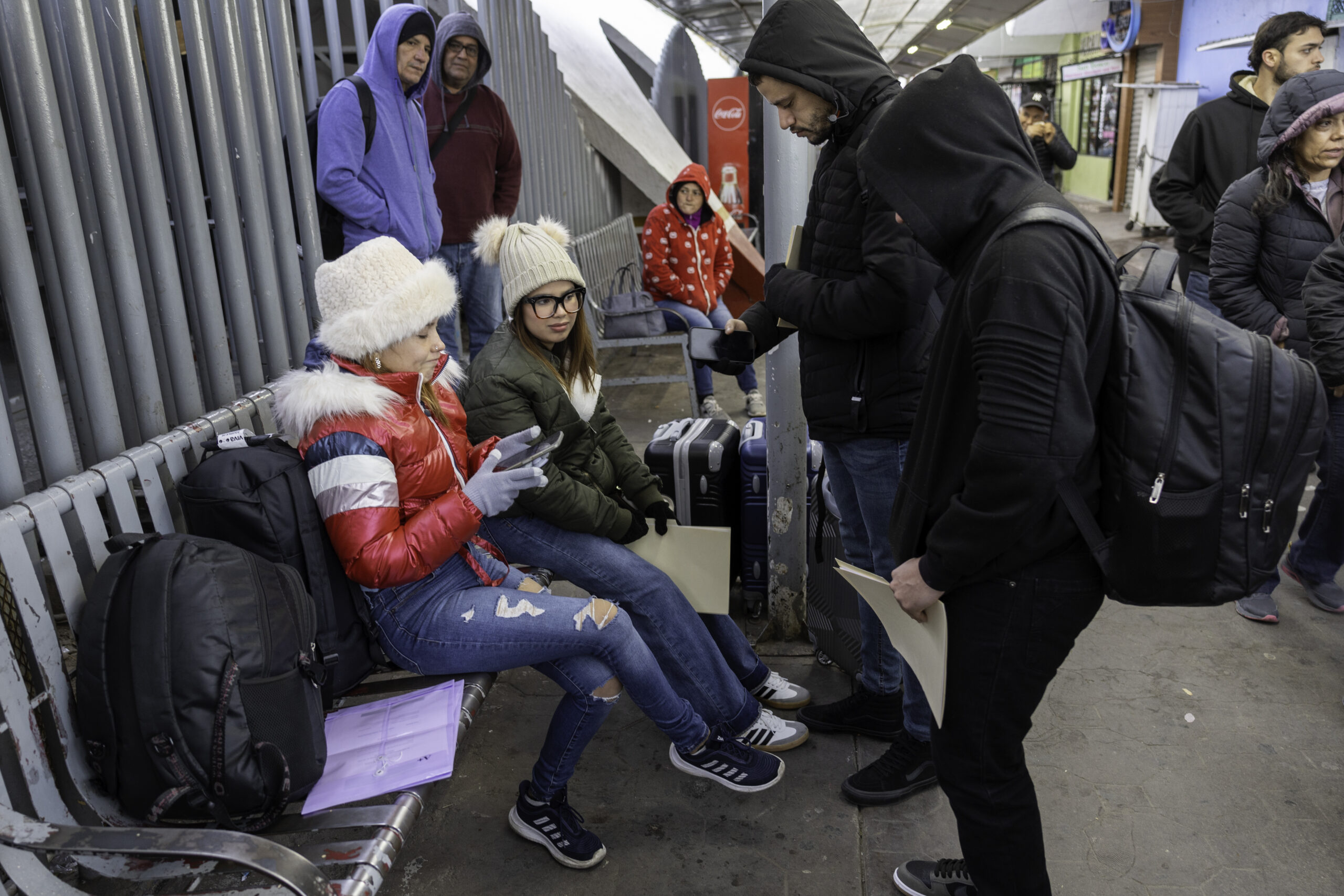- February 4, 2025
Trump betrayed Venezuelan exiles by revoking TPS and engaging Maduro

Andres Oppenheimer
There’s no way to hide it: President Trump has stabbed Venezuelan exiles in the back by revoking deportation protections for more than 504,000 Venezuelans living in the United States and starting talks with Venezuelan dictator Nicolas Maduro.
The Trump administration rescinded an 18-month extension for Temporary Protected Status (TPS) for Venezuelan exiles that had been granted by former President Biden days before leaving office. In practice, it will mean that — barring a Trump policy U-turn or its defeat in the courts — most Venezuelan TPS-holders will have to leave the United States by October.
The announcement “fell like an atomic bomb over this migrant community,” the Venezuelan opposition website elpitazo.net said. Trump’s de facto deportation order affects some of his most ardent supporters in the United States — both voters and TPS-holders. Buoyed by Trump and Florida legislators’ hard-line rhetoric against Venezuela’s dictatorship, Venezuela’s exile community had overwhelmingly supported Trump in the 2024 U.S. elections.
Shortly after the TPS announcement, the Trump administration dropped a second political bomb on Venezuela’s opposition by admitting that Trump’s special envoy to Venezuela, Richard Grenell, was scheduled to meet with Maduro on Jan. 31.
U.S. officials said the meeting was not a negotiation but rather a visit by Grenell to personally warn Maduro that Venezuela should accept U.S. deportees, or there would be consequences.
But many Venezuelan opposition figures are skeptical of these Trump administration assurances. They fear Trump is seeking a quid pro quo with Maduro, under which the United States would not step up oil sanctions on Venezuela in exchange for Maduro accepting U.S. deportation flights. Maduro foes have good reasons to be worried: So far, Trump’s top priority has been meeting his campaign promise to carry out mass deportations, rather than any effort to restore democracy in Venezuela.
On the TPS revocation announcement, most Americans rightly agree that the United States has the right to deport convicted criminals. The problem is, the Trump administration’s stated reason to expel Venezuelan exiles — the suggestion that many of them are violent members of Venezuela’s Tren de Aragua gang — is not only false, but absurd.
Trump has repeatedly claimed that Venezuela is emptying its prisons to send criminals to the United States. “They’re taking their drug dealers and their people in jail, lots of people in jail, they’re taking their murderers, their killers, they’re taking them and they’re sending them into the United States,” he said in a social media post on June 4 last year.
But does the president really think that most of the 504,000 Venezuelan TPS holders are criminals, or members of the Tren de Aragua gang?
The Department of Homeland Security has identified 600 people in the United State who might have ties to the Tren de Aragua gang, of which 100 are confirmed members, NBC News reported on Oct. 23.
That would amount to 0.1% of the Venezuelan TPS holders that Trump seeks to deport. Yes, you read it right: 99.9% of TPS holders are not likely to be members of the Tren de Aragua gang.
Venezuela’s opposition leaders, while careful not to antagonize the Trump administration, could not hide their disappointment. Maria Corina Machado, Venezuela’s most popular pro-democracy leader, posted a statement on her social media accounts saying that “we consider it important that TPS be preserved , or that an alternative mechanism be adopted” to protect exiles who face a brutal dictatorship if they return home.
The statement added that hundreds of thousands of Venezuelans in the United States escaped the Maduro dictatorship and “are legally contributing to the economy, especially in states such as Florida.”
David Smolansky, an exiled former mayor who is a close aide of opposition leader Edmundo Gonzalez Urrutia, who according to voting tallies won Venezuela’s presidential elections last year, said that Venezuelan TPS holders “cannot be sacrificed because of a few” criminals, such as members of the Tren de Aragua.
Drawing a parallel with Cuban exiles, Smolansky added that “millions of Cubans have benefited from immigration mechanisms to protect them from their dictatorship.” He added that Venezuelans “deserve no less.”
Trump’s decision to negotiate with Maduro, sidestepping Venezuela’s opposition, is equally ironic. Trump and Florida’s Republican legislators had harshly criticized the Biden administration’s talks with Maduro to entice him to hold last year’s elections. Now, the Trump administration is legitimizing Maduro’s fraudulent 2024 re-election by meeting with him in Caracas.
I cannot remember another U.S. president in recent history turning his back on such an enthusiastic constituency so quickly. Granted, Trump is an erratic president, and may change his mind 10 times in the coming days. But, for now, he has betrayed Venezuelan exiles, and forgotten about the struggle for democracy in Venezuela.

